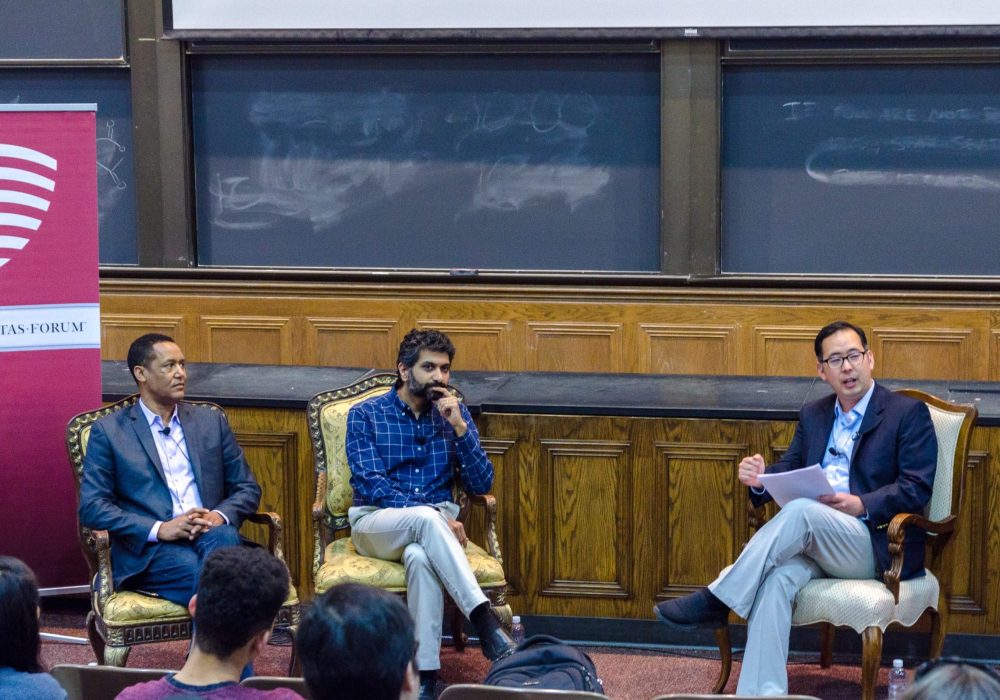To view photos of the conversation, visit Lumen Christi’s Facebook page.
Free and open to the public. Part of the Lumen Christi Institute’s “Science and Religion: A Dialogue of Cultures” project generously supported by the John Templeton Foundation.
Presented by the Veritas Forum at the University of Chicago, the Martin Marty Center, Cana, Cru, the Graduate Christian Fellowship, Holy Trinity Church, InterVarsity Christian Fellowship, Living Hope Church, the Lumen Christi Institute, the Program on Medicine and Religion, and the Zygon Center for Religion and Science.
Recent advances in science and technology have made great strides in addressing some of our deepest questions about being human. These advances help us to have a better understanding of who we are, where we came from, and what humanity’s place in nature might be. But are there limits to what science can tell us about being human? And does religious belief have anything to contribute to answering such questions? Join us for a conversation between two world-class professors as they discuss what makes us human.

